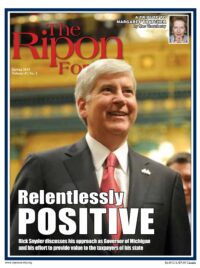
Although mass shootings have recently dominated the media and our public psyche, they only represent one facet of contemporary U.S. gun tragedies.
From 2009 until the end of 2010, the Bureau of Alcohol, Tobacco, Firearms and Explosives conducted “Operation Fast and Furious,” a “gun walking” scheme in Arizona. In this instance, “gun walking” involved intentionally permitting firearms to be purchased by individuals intending to illegally transfer ownership or to illicitly transport them elsewhere, including Mexico.
ATF agents instructed federally licensed firearms dealers to sell to known traffickers in order to allow agents to track these weapons, the theory being that by following these firearms, they could discover and take down larger illicit operations. With around 2000 weapons allowed to walk and their tracking proving unwieldy, one of the walked guns, perhaps unsurprisingly, was found to be the weapon used by a Mexican drug cartel member on December 14, 2010 to gun down U.S. Border Patrol agent Brian Terry in Arizona.
With limited resources, the ATF determined their best prospect to stop illegal firearms in the Southwest was Fast and Furious. “Felony stupid,” yes – but perhaps, it was the only option.
Congress, and particularly House Republicans have thoroughly probed Fast and Furious and the tragic death of Brian Terry. Their investigation focused on identifying and holding accountable those who green-lit the program which Government and Oversight Committee Chairman Darrell Issa called “felony stupid.” Their efforts have been vast and are important. However, they seemed to avoid examining the ATF’s justifications for Fast and Furious and to determine what Congress can do to ensure it does not happen again.
As documented by Congress’s Oversight reports, the reasons for ATF’s failures with Fast and Furious are myriad. Nevertheless, while the plan’s execution faltered and its premise remains convoluted, the ATF did surmise this was their best available tactic to thwart illegal firearms activity in the Southwest.
As outlined in an excellent Fortune feature by Katherine Eban, the ATF in Arizona was effectively incapable of arresting known firearms traffickers and straw purchasers – those who illegally purchase on behalf of someone else. Probable cause and admissible evidence proved near impossible to obtain due to an excessively stringent interpretation of law by the U.S. Attorney’s Office. In fact, from 2009 to mid-2010, Arizona ATF agents submitted 46 pages of illegal firearms purchase details on 31 suspects to the U.S. attorney’s office. Not one of these was indicted before the December killing of Terry. While briefly mentioned, yet dismissed out of hand by the Congressional Oversight reports, the ATF was indeed judicially constrained in preventing illegal firearms purchases and trafficking.
The ATF presently has around 2,500 law enforcement agents, fewer than it had in 1970 – yet the number of U.S. firearms has risen from one gun per two people to more than one per person. This short-handedness has been compounded by the ATF operating without a permanent director since 2006 – the same year Congress decided the position should require a Senate confirmation.
Undermanned, under-supervised, and with the law seemingly working against them, the ATF could not afford to strike out on cases. With limited resources, the ATF determined their best prospect to stop illegal firearms in the Southwest was Fast and Furious. “Felony stupid,” yes – but perhaps, it was the only option. After all, when fighting blindfolded and with one hand tied behind your back, your best hope is to land a haymaker.
Fortunately, there are Congressional actions which can be taken to aid the ATF in their charge going forward. Increasing funds to the ATF should be a top priority.
Fortunately, there are Congressional actions which can be taken to aid the ATF in their charge going forward. Increasing funds to the ATF should be a top priority. Its 2012 budget of $1.15 billion is only negligibly larger than the $900 million they received in 2000. Additionally, Congress should either immediately confirm a permanent ATF director, or undo this onerous requirement. The Senate confirmation process has become almost nonexistent, yet the number of federal positions currently filled by acting directors is staggering.
Congress is right in their oversight and their quest to hold individuals accountable. However, they must also expose and correct shortcomings in the law. Common sense bipartisan pieces of legislation such as H.R. 452, the Gun Trafficking Prevention Act, will address some of these shortcomings and also strengthen illegal firearms penalties to aid law enforcement. Introduced by Democrat Carolyn Maloney, with three original co-sponsors including two Republicans, Scott Rigell and Patrick Meehan, the legislation would finally make firearms trafficking a federal offense. It will also increase the sentence for a straw purchaser, a change which law enforcement officials have encouraged to provide them more leverage to turn suspects into informants.
Those opposed to new gun restrictions frequently contend that our nation has enough firearms laws, they simply are not properly enforced. Indeed, this is partially the case, and with a few legislative tweaks, Congress can allow for true enforcement of these laws. Although the media has focused on different aspects of the gun control debate, there exist non-controversial changes which Congress should make to aid the ATF in their mission to thwart illicit
firearms.
Stephen Jackson is Director of Policy for The Ripon Society.




